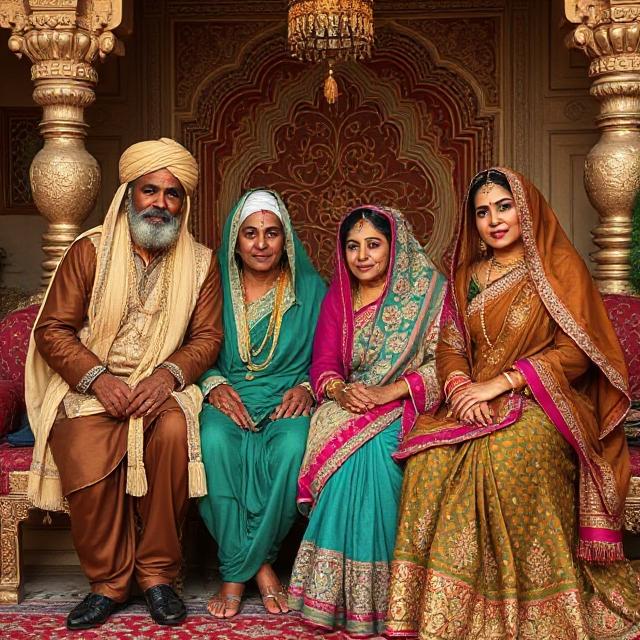The Legacy of Wealth and Wisdom: Understanding the Rise of Well-Known Marwari Families in India
Introduction
When we think of business dynasties in India, few communities have been as consistently influential as the Marwaris. Known for their discipline, risk appetite, and ability to convert ideas into thriving enterprises, Marwari families have shaped modern Indian industry.
From the Birlas to the Bajaj family, the Piramals to the Goenkas, and the Singhanias to the Agarwals and Ruis, Marwari entrepreneurs embody a philosophy where income is treated as capital, and every rupee reinvested compounds into generational wealth.
Interestingly, Marwari values are much like “makhana” (fox nuts)—humble, grounded, often overlooked, but full of long-term nutritional value. Just as makhana has transformed from a traditional snack into a global superfood, Marwari families have converted traditional trading principles into globally respected corporate empires.
This article explores the strategies, values, and governance systems that define these families, their impact on India’s economy, and the lessons professionals and business owners can learn from them.
Section 1: The Marwari Philosophy of Wealth
Wealth as a System, Not an Event
For Marwaris, wealth isn’t luck or one-time windfalls—it’s the product of a systematic approach to risk-taking, capital allocation, and governance.
- Income is capital: Profits are not consumed but reinvested into new businesses or expansions.
- Networks of trust: Deals are built on relationships, credibility, and word-of-mouth reputation.
- Soft to hard assets: Family goodwill, trust, and social standing are converted into tangible assets like industries, factories, and brands.
- Family governance: Using HUFs (Hindu Undivided Families), trusts, and boards, they keep wealth organized and succession planned.
- Frugality & Reinvestment: Instead of flaunting luxury, they reinvest earnings into enterprises—ensuring resilience across generations.
Much like cultivating makhana, which requires patience, careful processing, and dedication before it becomes edible and profitable, Marwari families cultivate wealth with discipline and foresight.
Section 2: The Pioneers – Well-Known Marwari Families
1. The Birlas (Aditya Birla Group)
The Birlas are among the most iconic Marwari business houses. Founded in the early 20th century, they expanded from trading into textiles, cement, aluminum, and financial services. Today, under the Aditya Birla Group, they are global leaders.
- Values: Reinventing businesses while sticking to conservative financial practices.
- Key Lesson: Diversification works when paired with governance and disciplined capital deployment.
2. The Bajaj Family (Bajaj Group)
Founded in 1926, the Bajaj Group started with trading and later moved into automobiles, financial services, and insurance. Their philosophy has always been aligned with ethical business practices, heavily influenced by Mahatma Gandhi’s vision.
- Values: Strong ethical foundation, CSR-driven.
- Key Lesson: Business rooted in values can outlast generations and build public trust.
3. The Piramals (Piramal Enterprises)
The Piramals evolved from textiles to pharmaceuticals, healthcare, and financial services. They are often celebrated for agility in business restructuring.
- Values: Opportunistic but disciplined pivots.
- Key Lesson: Knowing when to exit an industry can be as important as knowing when to enter.
4. The Goenkas (RPG Group)
The RPG Group spans power, infrastructure, IT, and media. Their strength lies in governance systems and professional management, balancing family leadership with global executives.
- Values: Professionalization without losing family control.
- Key Lesson: Hiring external talent ensures long-term competitiveness.
5. The Singhanias (JK Group)
The JK Group diversified into cement, paper, textiles, and FMCG. Their resilience is evident in how they survived multiple industrial slowdowns.
- Values: Long-term focus, patience during downturns.
- Key Lesson: Cyclical industries reward families with staying power.
6. The Agarwals (Vedanta, Emami Group)
- Vedanta (Anil Agarwal): Built from scrap dealing to a mining giant with global operations.
- Emami (R.S. Agarwal & R.S. Goenka): Created a consumer brand empire in FMCG.
- Values: Visionary risk-taking and marketing acumen.
- Key Lesson: Consumer brands and commodities both thrive when paired with Marwari discipline.
7. The Ruis (Essar Group)
The Ruias built the Essar Group into a giant spanning steel, oil, energy, and infrastructure. Known for aggressive expansion, they also showcase the challenges of over-leverage.
- Values: Ambition, scale-driven growth.
- Key Lesson: Risk appetite must be balanced with financial conservatism.
Section 3: Shared Traits That Define Marwari Families
- Makhana Mentality: Patience, discipline, and value extraction from overlooked opportunities.
- Generational Continuity: Building businesses that last beyond a single entrepreneur’s lifetime.
- Frugality in Lifestyle: Wealth is displayed in balance sheets, not luxury.
- Trust Networks: Community and family trust acts as informal collateral.
- Adaptability: Shifting from trading to industries, and now to digital enterprises.
Section 4: Lessons for Professionals & Business Owners
- Treat Income as Capital – Reinvest aggressively.
- Value Relationships – Build a network of trust before chasing profits.
- Institutionalize Governance – Adopt systems like HUFs, trusts, or boards.
- Patience Wins – Just like makhana cultivation, wealth-building is a process.
- Think Generationally – Don’t chase quick wins; design businesses to outlive you.
Section 5: The Future of Marwari Enterprises
As India grows into a $5 trillion economy, Marwari families will play an even bigger role. Expect to see:
- Expansion into green energy, digital finance, and global M&As.
- Younger generations pushing for sustainability and innovation.
- Continued relevance of trust-driven governance.
Conclusion
Marwari families in India are not just wealthy industrialists—they are custodians of a philosophy where patience, reinvestment, and trust create compounding value across decades.
Just as the world is waking up to the power of makhana, a once-humble nut now sold in premium health aisles, the world continues to learn from the Marwari way of wealth: quiet, consistent, and generational.
For professionals and business owners, the message is clear—wealth is not an event, it’s a system.












